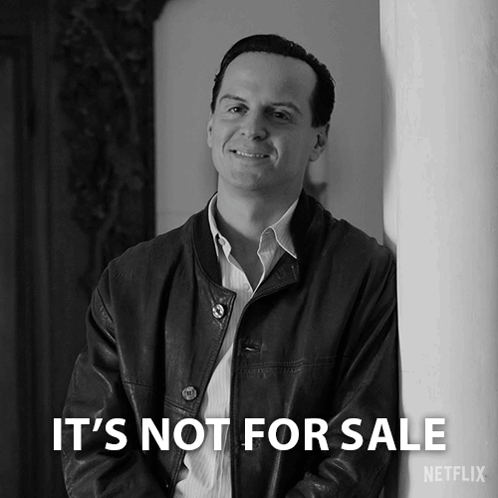The possible forced sale of TikTok has kickstarted a debate in the US about national security vs. the country’s First Amendment protection of freedom of expression.
❓What’s going on?
On April 24, US President Joe Biden signed a law requiring Chinese-based company ByteDance to sell its stake in TikTok, or the US government would ban the insanely popular app.
This new potential TikTok ban, the Protecting Americans from Foreign Adversary Controlled Applications Act, was not part of a standalone bill but rather was included in a US$95 billion mostly military aid package designed to support Ukraine, Israel and Taiwan, which essentially helped the bill pass through Congress. Most Republicans really wanted the TikTok ban, and most Democrats really wanted the military aid package, so by packaging them together, it finally made its way to the president’s desk after a lot of pushback.
Taking a bit of a step back, the US has expressed national security concerns about TikTok for years because it’s said it’s worried the Chinese government could use its influence over ByteDance to harm Americans, from data collection to spying to influencing public opinion. ByteDance is the parent company of TikTok, and while only 20% of its shares are owned by its Chinese founders, that’s still a controlling stake in the company.
Now, the first potential ban on TikTok was introduced in 2020 by the Trump administration, but it’s taken until now for the threat to make headway. It gives ByteDance 270 days to sell its stake in TikTok, with the potential for Biden to give it a 90-day extension. This means TikTok has just about a year before facing a ban in the US.
From there, ByteDance sued the US government on May 7, saying, “Congress has taken the unprecedented step of expressly singling out and banning TikTok.”
In the backdrop of all this is the relationship between Beijing and Washington, which has faced a lot of tensions over the past decade. Let’s just say, “It’s complicated.”
"The vote on the bill runs contrary to the principles of fair competition and justice. When someone sees a good thing another person has and tries to take it for themselves, this is entirely the logic of a bandit."
-Chinese foreign ministry spokesman Wang Wenbin.
💰Will ByteDance sell its stake?

Days after the passing of the US law, ByteDance said it “doesn't have any plans to sell TikTok.”
Why? Well, a lot of this comes down to TikTok's secret sauce – its recommendation algorithm. That’s the technology behind how TikTok learns what content users like and decides what to recommend for them next. In 2020, China added these kinds of algorithms to its export control list, meaning any sale of this sort of tech requires government approval. So, for ByteDance to sell with the algorithm attached, China would have to give its blessing, which is pretty unlikely.
Antonio Sanchez, the principal cybersecurity evangelist at Fortra, a cybersecurity company, told TMS it is “hard to see a world where a Chinese-owned company is going to allow their biggest geopolitical rival to dictate to them how to run their business and impact a large revenue stream.”
“If somehow they do sell, then there is always the concern of what they have to gain by allowing this to happen. I would expect this to become a very long and drawn out court battle until someone gives up, because it’s not worth the effort to continue the fight.”
Blair Huddy, the founder and CEO of Hudson Davis Communications, a PR firm that represents major tech clients like Google, Salesforce and Adobe, compared the situation to TikTok’s legal battle with Universal Music Group (UMG), another brand her company has represented. In early May, UMG and TikTok settled a royalty dispute that had resulted in a near blackout of all UMG-owned music on the platform.
“TikTok held the same firm hand with their UMG negotiations, and eventually did come to an agreement with UMG. But, they did let significant artists' music fall off the app while the two sides worked things out,” she said. “That was a huge hit to content on the platform, and they let it happen, so I think they will be just as firm here.”
Experts who spoke to TMS did not believe Beijing would allow the sale of TikTok to a US corporation, and the government said in March 2023 that it would “firmly oppose” any forced sale of the platform.
💬The free speech battle
The possible forced sale of TikTok has kickstarted a debate in the US about national security vs. the country’s First Amendment protection of freedom of expression.
Jon Molik, a US military intelligence officer with decades of experience, speaking on his own behalf, explained that his concerns are about the data gathered by TikTok and the reality that ByteDance must maintain a relationship with the Chinese Communist Party (CCP).
“The First Amendment is not at play here. A ban on a platform isn’t curtailing speech. Americans are free to say what they like on myriad other platforms.” Molik explains that “this is about national security” and not allowing other countries to “use our democratic freedoms against us.”
In July of 2022, in an effort to calm those concerns, TikTok began to store US user data domestically in the US via Texas-based company Oracle.
Cybersecurity professional Sanchez said: “The real issue is the volume of personal data they are collecting on every user which would have to be provided to the Chinese government if they asked for it. It’s seems odd that those with the argument of not wanting big government to infringe on freedom of speech would be willing to give up their privacy to another big government.”
“We have a right to free speech on platforms, and when the government attempts to limit those platforms, it’s an attempt to limit what we say and who we say it to, and how we share information,” said Huddy
Now, how likely will TikTok be banned? Well, two law professors published an argument in The Conversation, arguing that the law is prior restraint, which is essentially when the government tries to stop speech before it happens. And generally, American courts rule against cases of prior restraint, which may work in TikTok’s favor.
🌏The bigger picture – what happens if TikTok is banned in the US?

We’ve lived in a TikTok-free world before, and some argue that if it’s banned in the US, another company will probably step and just try to replace it. But here are some of the potential consequences that some people have brought up.
A TikTok-funded study from Oxford Economics found that the app generates US$24.2 billion for America’s gross domestic product (GDP). The same report said TikTok drove nearly US$15 billion in revenue towards small businesses using the platform for advertising and e-commerce, a number that would evaporate immediately with the ban. On top of this, a heap of content creators use TikTok as a source of income. All in all, banning the app would be like closing up shop for a lot of people.
“There is a significant concern that the ban will impact the incomes of millions of Americans who have TikTok shops that support their living,” said Huddy. Gonzalez shared a similar perspective, saying, “Beyond the First Amendment supporters, other opponents of the ban are the users that are monetizing on that platform as they don’t want to lose that income stream.”
ByteDance and TikTok also argue that the ban would have an isolating cultural impact, as it “bars every American from participating in a unique online community with more than 1 billion people worldwide.” For context, even Trump and Biden are on TikTok ... for now.
Lastly, a ban could have a ripple effect internationally. For one, it could exacerbate the already-strained relationship between the US and China and lead to even more tech decoupling between the two countries. Potential political and economic fallout could even affect other Chinese tech companies. On top of all that, the US ban may influence other countries to enact similar laws, which could lead to even more fragmented global conditions for trade and communication. For example, Canada has said it's closely watching the situation unfold.
👄What are people saying?
"We know that a lot of people, particularly young people, enjoy using TikTok and we need to make sure that usage is safe. So we're going to follow carefully, but before taking any drastic actions, let's see how the company responds."
- Canadian Prime Minister Justin Trudeau
“This unconstitutional law is a TikTok ban, and we will challenge it in court. We believe the facts and the law are clearly on our side, and we will ultimately prevail. The fact is, we have invested billions of dollars to keep US data safe and our platform free from outside influence and manipulation.”
– A statement from TikTok
“We’ve been very clear, members of Congress have been very clear, we do not want to see a ban. This is not about a ban. This is about divestment, selling — right? — being sold. This is about our national security. This is not concerns about Americans using TikTok. This is about PRC ownership, right? This is about the control of TikTok.”
– White House Press Secretary Karine Jean-Pierre
“If Congress can do this, it can circumvent the First Amendment by invoking national security and ordering the publisher of any individual newspaper or website to sell to avoid being shut down. And for TikTok, any such divestiture would disconnect Americans from the rest of the global community on a platform devoted to shared content — an outcome fundamentally at odds with the Constitution’s commitment to both free speech and individual liberty.”
- TikTok and ByteDance, in a petition filed in the District of Columbia Court of Appeals
“Frankly, there are a lot of people on TikTok that love it. There are a lot of young kids on TikTok who will go crazy without it. There are a lot of users, a lot of good, and there’s a lot of bad with TikTok. But the thing I don’t like is that without TikTok, you can make Facebook bigger, and I consider Facebook to be an enemy of the people along with a lot of the media.”
– Former US President Donald Trump, who is also the presumptive nominee of the Republican Party, after reversing his stance on banning TikTok
“As a reminder, TikTok is only 20% owned by the two … founders; the other owners are already US-based companies and private parties. The basis for the ban then becomes moot. It’s less about data security and more about the US wanting control, but the US already has majority holdings in the app.”
– Blair Huddy, the founder and CEO of Hudson Davis Communications
“I don’t let my kids use TikTok because the problem isn’t so much about data collection – I understand Alphabet and Meta collect similar, I emphasize similar, types of data for profit. This is about where the data goes, how it is aggregated, and what it will eventually allow the Chinese military to do in time of war.”
– Jonathon Molik, US military intelligence officer





Comments ()